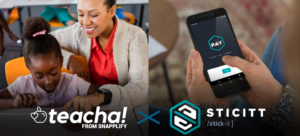The Minister of Basic Education Mrs Angie Motshekga has welcomed the announcement by President Cyril Ramaphosa today regarding Cabinet decision on the school break. The President announced that Cabinet had taken a decision to allow schools to go on a break for four (4) weeks.
The sector has successfully managed to reopen schools in a phased-approach in June after the forced closure in March due to COVID-19. More grades have been phased in and the attendance rate has been satisfactory.
In the same context some parts of the country have been experiencing an increase in community infections which have led to high levels of psychological and emotional stress. This has spilled over into schools as schools are a microcosm of society. The impact of COVID-19 has also led to the health system being overstretched and some schools taking a strain.
“It is important to bear in mind that the latest opinions of the Ministerial Advisory Committee, medical and science experts is that learners are better at school than in communities and homes where the infections are actually taking place,” said Minister Motshekga.
It’s important to remember that government’s decision to gradually lift the lockdown, was and still is predicated on saving lives and livelihood. Schooling is very much part of our livelihood. Schools and indeed the system, are dealing with a completely new environment. The basic education system needs to be afforded the opportunity and space to gradually settle in dealing with the new normal of operating under COVID19, in line with the Risks Adjusted Differentiated Approach in Reopening schools.
The Minister was advised by the National Coronavirus Command Council and Cabinet to engage on a consultation process with stakeholders in the basic education sector and then table a report for consideration.
The following organisations were consulted; Under National Alliance of Independent Schools Association (NAISA) consisting of the Independent Schools Association of Southern Africa (ISASA); South African Montessori Association (SAMA); Catholic Institute of Education (CIE); Accelerated Education Enterprises (AEE), South African Waldorf Federation (SAFWS); Association Of Christian Schools International (ACSI); Association of Muslim Schools (AMS); Anglican Board of Education South Africa (ABESA; South African Principals Association; Deaf Education Principal’s Association of South Africa (DEPASA); Education Management Association of South Africa (EMASA); South African Democratic Teachers Union (SADTU); National Professional Teachers’ Organisation of South African National Professional Teachers’ Organisation of South Africa (NAPTOSA); SuidAfrikaanse Onderwysersunie (SAOU); Professional Educators Union (PEU); National Teachers Union (NATU); Federation of Governing Bodies of South African Schools (FEDSAS); Governors Alliance (GA); Governing Body Foundation (GBF), National Association of Schools Governing Bodies (NASGB).
Following the consultations and input obtained through the process Cabinet considered and approved the following:
- 4 weeks break starting on 27 July 2020 – 24 August 2020 for Public Schools.
- Allow Grade 12 learners and teachers a break in the first week (27 – 31 July 2020).
- School Management Teams (SMTs) using the whole of the first week (27 – 31 July 2020) to wrap up work at school and returning with teachers a week earlier (17-21 August 2020) for the return of learners.
- Grade 7 learners to return on 10 August 2020.
- The academic year to be extended beyond 2020.
- School Management Teams (SMTs) to ensure that NSNP continues during the break under safe and orderly conditions.
- Arrangements for different categories of special schools should be made.
- Establishment of the Task Team comprising key stakeholders in the sector to deal with identified challenges.
Minister Motshekga says the break will allow schools to prepare for the return of more grades in school later in August. The Minister has urged school communities to continue with their work during the break.
Parents, teachers and learners alike are urged to continue with school work.
“Schools must make arrangements with parents for learners to get work or materials for them to remain fully engaged during the break. Learners should also be given work as they collect food or when they leave on 24 July 2020,” the Minister said.
Other programmes such as broadcast solutions, Read to Lead, should also be used to support learners during the break. National School Nutrition Programme (NSNP) should be implemented during the break to avoid being in contempt of court. Communication should be sent to school principals who should make this possible.
During the break teachers and non-teaching staff remain on duty at home and will remain at home but should avail themselves when necessary. The school principal, school management team and Head of the Department will determine.
“Once again we appeal to members of the public to protect schools during the break to prevent theft and damage that was caused when schools were closed to the COVID19. It remains one of our biggest concerns when schools are targeted. The burglaries and theft of food supplies and other expensive items defeats our efforts to provide mainly for the poor and vulnerable learners who are always the hardest hit,” the Minister said.
The Minister has reminded parents, learners, teachers and non-teaching staff and everybody else to continue to implement the health and safety measures that include; washing of hands, sanitizing, social distancing and the wearing of masks at all times.



